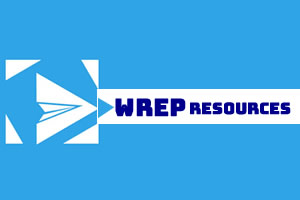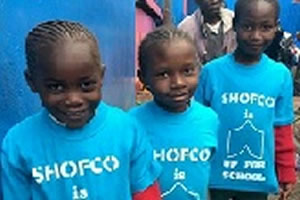We also welcome the decision to direct the Secretariat and the Management Committee (MC) to elaborate the necessary protocols governing the administration of the ATT sponsorship programme by the ATT Secretariat, “including a protocol to guide the selection process of the ATT sponsorship programme in order to ensure transparency, efficiency and impartiality in the work of the programme”. In light of this agreement, we would like to express our thoughts and propose ways to indeed ensure transparency, efficiency and impartiality in the programme.
In our view, what was unfortunate about the CSP4 was that it lacked an appropriate mechanism to ensure participation by a diverse range of relevant civil society experts from the global south. The problem was vividly indicated by the fact that only one civil society member from the South-East Asian region was sponsored to participate in the Conference through the formal sponsorship programme. No other civil society representative from the region was able to obtain any other sponsorship funds despite the Conference being the first CSP that was held in the Asian region. It is important to note that there are only a few States Parties to the ATT in the region, making work towards the universalization of the Treaty in Asia crucial. It has been stated multiple times in past Conferences that civil society participation is instrumental in universalization and implementation efforts. In fact, civil society actors in the region have long been actively working to support their governments to strengthen their export control laws and systems. Their participation would have enabled them to share their expert knowledge at the Conference on the unique challenges governments in the region face. It would have also allowed governments and fellow civil society actors from the region to discuss ways to address these obstacles in ratifying and implementing the Treaty. Unfortunately, almost none in the region was supported by either formal or informal sponsorship programmes.
As we agreed in the final report of the CSP4, the ATT sponsorship programme is important in facilitating “broad participation in Conferences of States Parties and meetings of the Working Groups”. As the formal sponsorship programme is open to all civil society actors irrespective of their status or affiliation to international coalitions, it can certainly facilitate broad and diverse civil society participation in CSPs. However, the formal sponsorship funds available for civil society actors have been too few: only 2 were sponsored in 2016, only 5 in 2017 and 8 in 2018. We believe that this gap is something that could be remedied by the ATT Secretariat, members of the MC and potential donor states.
We also reiterate that the criteria used for the selection of civil society applicants should be clarified to ensure participation by a diverse range of relevant civil society experts from countries on the OECD DAC country list. The balance of geographical and gender representation should be achieved. There must also be a selection criterion that takes into account the candidateʼs prior commitment and work on the ATT and their experience and knowledge on the ground, especially in the areas such as conventional arms control and security export control. Moreover, we firmly believe that the ATT Secretariat should have a transparency mechanism in the sponsorship programme which is open to applicants to allow them to have clear knowledge of the criteria for eligibility. We are prepared to provide more detailed proposals on the necessary protocols governing the administration of the ATT sponsorship programme.
Our organisations base our approach on the principles of fairness, diversity, commitment and impartiality. We remain committed to supporting endeavors to universalize and implement the ATT, and we would like to help develop the sponsorship mechanism that would benefit universalization in the most challenging regions.
Signed.
- Control Arms Foundation of India
- Disarmament and Arms Control [South Africa]
- East Africa Action Network on Small Arms
- Gender and Environmental Risk Reduction Initiative (GERI) [Nigeria]
- Human Rights Education and Peace International (HUREPI-TRUST) [Tanzania]
- Institute of International Studies (IIS), Universitas Gadjah Mada [Indonesia]
- International Action Network on Small Arms Women Network- Nigeria
- Manipur Women Gun Survivors Network (MWGSN)
- Nonviolence International Southeast Asia
- Promotion of Peace, Crime Prevention and Social Reinsertion (FOMICRES) [Mozambique]
- Sustainable Peace And Development Organization (SPADO) [Pakistan]
- Tanzania National Action Network on Small Arms
- Terra Renaissance [Japan]
- West African Action Network on Small Arms
- Womenʼs Right to Education Programme (WREP) [Nigeria].


